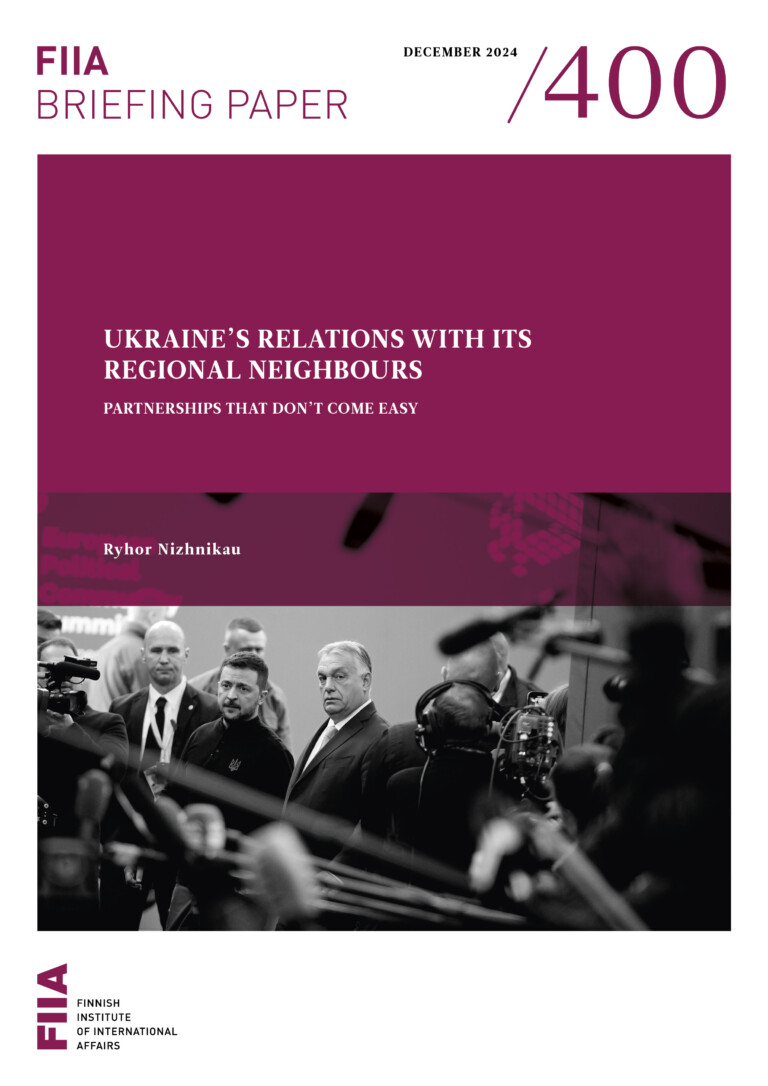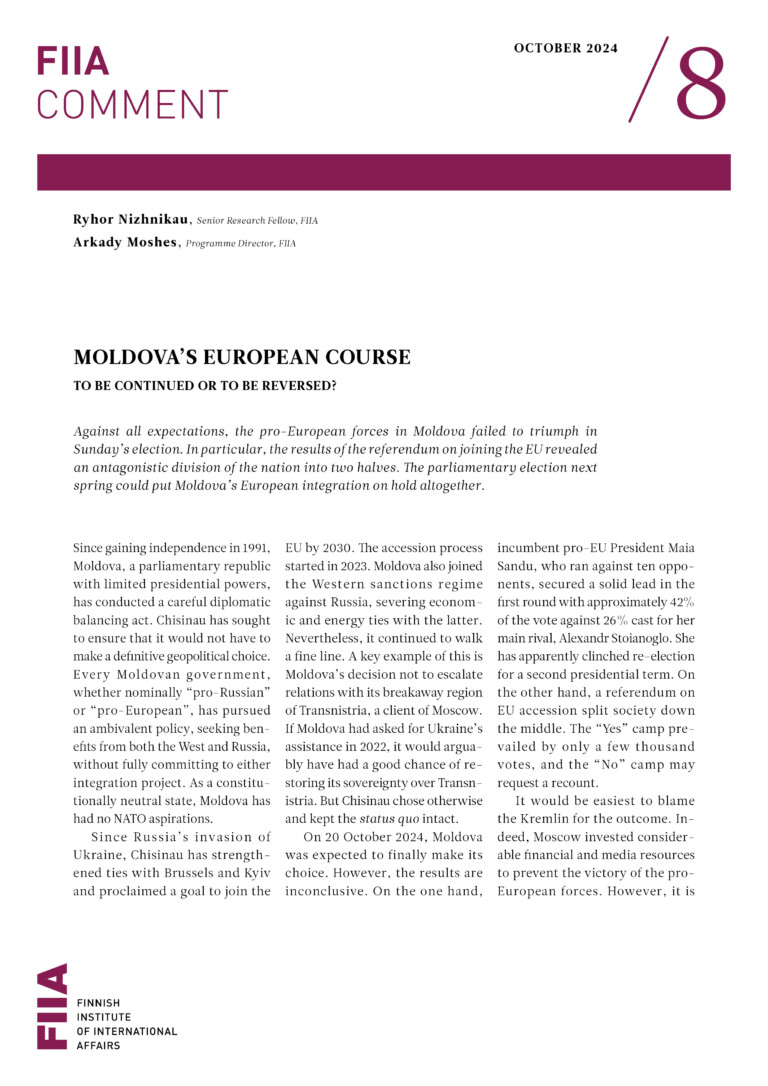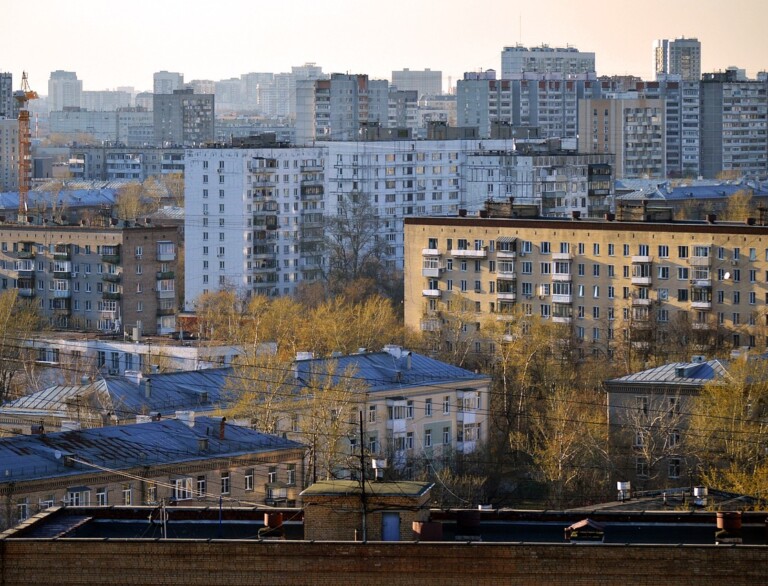The European Union has lost a significant part of its soft power in Russia. It is no longer viewed as a success story worth being a part of, or developing a partnership with.
The European Union has lost a significant part of its soft power in Russia. It is no longer viewed as a success story worth being a part of, or developing a partnership with.
A call for strategic cooperation between Europe and Russia, which implies normalization of relations and the lifting of EU sanctions against Russia as the first step, can often be heard across European capitals and Brussels. Business representatives count on reviving export opportunities to spur new growth, and politicians hope to jointly address security challenges, with the crisis in the Middle East, terrorism, and migration being at the top of the list.
From the analytical standpoint, these assumptions have been challenged many times. The Russian economy is too small and too structurally crippled by protectionism and corruption to be able to help Europe address the problem of its sluggish economic growth. Moscow’s political goals in the Middle East are too distant from those of the West, and the Kremlin’s rejection of “colour revolutions” is so fundamental that hardly any common ground in security issues can be found.
However, the biggest problem with the “we need Russia” mentality is not whether this approach is realistic – after all, some people will always be able to make money there – but rather that the sentiment is not reciprocated on the other side. With the exception of the traditional but electorally insignificant intelligentsia, for which European and Russian high culture are parts of a single whole, very few people in Russia will subscribe to the point of view that Russia’s future should be linked to that of Europe, and especially its political embodiment, the EU. Even Russia’s new rich, with their wealth still invested in London or Nice, no longer promote Russia’s “European choice”. Some of them chose quiet individual integration into Europe, while others simply joined the majority.
For these reasons, the appeal to cooperate is falling on deaf ears.
This was not always the case. During President Vladimir Putin’s first term in office the sentiment was different. In 2003, the EU and Russia agreed to proceed towards common spaces in economy, justice and home affairs, external security as well as culture, education and research, which, technically speaking, was a plan for bilateral integration.
But today, views in Russia are quite different. As observed by Dmitri Trenin from the Carnegie Moscow Centre, “Putin’s vision of a ‘greater Europe’ from Lisbon to Vladivostok, made up of the European Union and the Russian-led Eurasian Economic Union, is being replaced by a ‘greater Asia’ from Shanghai to St. Petersburg”. Further, in its recent report, Russia’s influential non-governmental Council on Foreign and Defence Policy goes on to state that “economically, but also mentally, Russia should be not the Eastern periphery of Europe, but the Northern part of enormous Eurasia”.
The trend is reflected in public opinion as well. According to the reputed Levada Centre, in May 2016, 62% of Russians had very or rather negative attitudes towards the EU, while only 1% had a very positive attitude, whereas in July 2013, 64% had expressed positive attitudes.
No doubt, the ongoing conflict over Ukraine has played a part in shaping Russian perceptions of Europe as unfriendly, and in pushing Moscow further towards the embrace of Beijing. But the events in Ukraine only served as a catalyst. A deeper reason lies in what can be called Europe’s “failure to impress”. With all its multiple problems, well before Brexit and the recent terror attacks, Europe simply ceased to be viewed in Russia as a success story, worth being a part of or developing a partnership with.
No longer being a role model, the EU lost a significant part of its soft power in Russia, and it was an easy task for the propaganda machinery to do the rest.
From the point of view of an ordinary Russian, could economically stagnant Europe present an attractive future for the people who live next to the dynamic Asia-Pacific? Could the EU, which is scaling down its foreign policy ambitions even in its immediate neighbourhood, is unable to secure its borders, and is outsourcing its defence to NATO and the US, be a preferred partner for a country which is proud to have its own geopolitical project and still contemplates a global role? Are the cars periodically burning in French cities or the inability of the police to guarantee people’s personal safety on New Year’s Eve in Cologne the notorious “standards” that Russia would aspire to adopt? Probably not.
Rather, all of the above project an image of weakness, ineffectiveness and decline. And the weak, as Vladimir Putin once observed, get beaten. Whether this perception of EU weakness in Russia is a major driver of the EU-Russian conflict is, no doubt, debatable. But clearly, it is not a factor that would draw Russia closer to Europe.
Of course, things may change in the future. Russia may become frustrated with the overall results of its “pivot” to Eurasia and more concerned about, than fascinated with, the rise of China. It may come to realize that in order to remain competitive in the world, it will need economic modernization, for which Europe may be of assistance. In the event of serious destabilization south of its borders, Moscow may need to seek allies in the West. Meanwhile, Europe will hopefully be able to address some of its problems successfully.
But all of this belongs to the future. Thus far, European decision-makers would be advised not to look further than they can see, not to base their policies on the notion that “it would be nice to be together”, but rather to prepare for a protracted and difficult period in relations with Russia.






